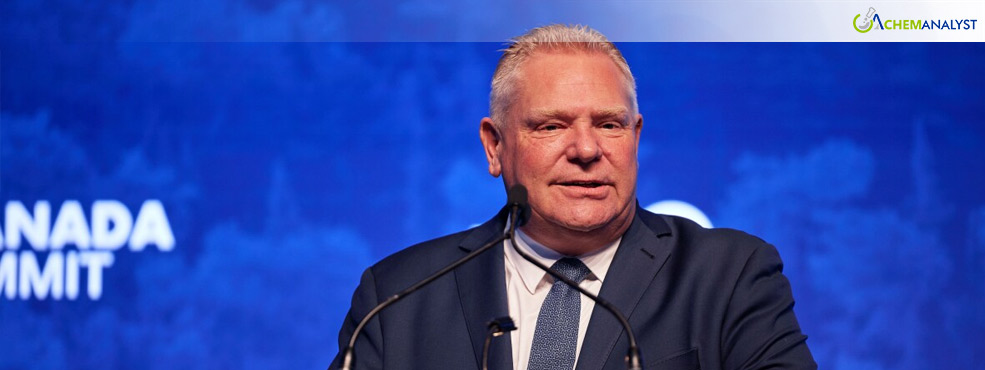Welcome To ChemAnalyst

Key Takeaways:
• Ontario might ban American-made alcohol and restrict electricity exports to U.S. if U.S. President Donald Trump imposes tariffs on Canadian products.
• The province is ready to use all available tools to protect its economic interests, like limiting exports of critical minerals for electric vehicle batteries.
• Ontario exports power to U.S. states, and halting exports could make energy unaffordable for Americans in those regions.
• President Trump argued that the U.S. should not be subsidizing Canada.
Ontario is considering a range of retaliatory measures, including barring American-made alcohol and restricting electricity exports to key U.S. states, should U.S. President Donald Trump follow through on threats to impose sweeping tariffs on all Canadian products. This warning comes as tensions rise between Canada and the U.S. over trade and border issues.
The proposed measures reflect Ontario Premier Doug Ford’s resolve to protect the province’s economic interests in the face of potential U.S. tariffs. According to a senior official in Ford’s government, Ontario is contemplating restricting the Liquor Control Board of Ontario (LCBO) from purchasing American-made alcohol. Additionally, Ontario is considering halting electricity exports to Michigan, New York, and Minnesota, which have historically relied on Canadian power.
“We are prepared to use every tool at our disposal to defend Ontarians and Canadians if President Trump moves forward with these tariffs,” said Ford talking to CNBC. “This is a last resort, but we need to send a clear message that if you attack Ontario, you attack the livelihoods of people here.”
In addition to the electricity export restrictions, Ontario is exploring other trade-restrictive measures, such as blocking U.S.-based companies from participating in government procurement processes and curbing exports of critical minerals. These steps would align Ontario with Canada’s broader trade concerns regarding Trump's tariff threats.
Trump has threatened to impose a 25% tariff on all products from Canada and Mexico. The proposed tariffs would deeply impact the Canadian economy, as trade with the U.S. is critical to both countries. In 2023, Ontario exported power to 1.5 million U.S. homes, and the province is also a major supplier of minerals critical for electric vehicle batteries.
Ford’s remarks about restricting electricity exports were confirmed by his office following talks with Michigan Governor Gretchen Whitmer. Ford has warned that cutting off electricity supplies would make power unaffordable for Americans in these states, many of whom depend on Canadian energy.
Trump, however, has downplayed the potential trade conflict, suggesting that the U.S. should not be expected to subsidize Canada. Speaking to CNBC, Trump said, “The United States is subsidizing Canada, and we shouldn’t have to do that.”
Despite the strong rhetoric, Ford remains hopeful that the situation can be resolved diplomatically. "I don’t think President Trump wants this to happen,” he said. “We’re sending a message that we are prepared to act, but we hope it never comes to that.”
The potential tariffs would have far-reaching consequences on U.S.-Canada relations. In 2023, Canada was the top export destination for 36 U.S. states, and nearly $2.7 billion worth of goods and services cross the border every day. The two countries share a deeply integrated trade relationship, with Canada supplying more oil to the U.S. than any other nation.
While Premier Ford’s government is prepared to defend Ontario’s interests, the oil-rich province of Alberta has ruled out cutting off oil exports. Alberta Premier Danielle Smith has emphasized a diplomatic approach, underscoring the importance of maintaining U.S.-Canada energy relations.
We use cookies to deliver the best possible experience on our website. To learn more, visit our Privacy Policy. By continuing to use this site or by closing this box, you consent to our use of cookies. More info.
